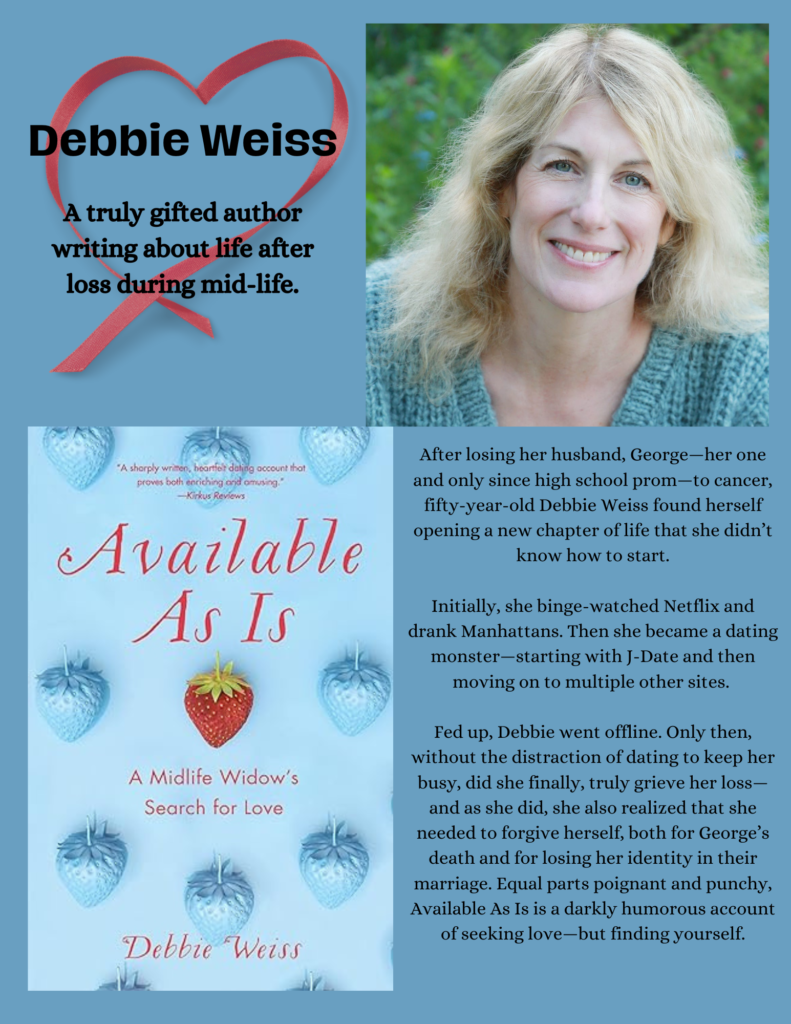
If I could describe middle-aged daters in one word, it would be bitter, and that bitterness is destroying our chances of finding love.
Let’s start with the origins of our bitterness
For many of us, our resentment began with the very event, usually death or divorce, that caused us to be single in the first place. We never expected to be in this situation at our age, and we’re still in mourning for our past lives, or at least our idealized versions of them.
As we set sail on the murky waters of adult dating, we feel that fate has already failed us. We’d assumed our lives were settled, only to discover our partners weren’t who we hoped they were. Or perhaps they’d had the poor taste to die prematurely. So even as we push off the dock, we are coming from a place of abandonment.
Our bitterness only deepens when we go online to find ourselves adrift in a haphazard culture of disposable people. We go from being “the one” to becoming one of innumerable seekers in an impersonal, sometimes hostile, environment. We’re subject to fake profiles, false representations, self-delusional photographs, and for women, allegedly playful sexual innuendos which come across as rape culture.
Sane people do not send unsolicited photographs of body parts
By the time we do meet a real, potentially sound individual, we’re already leery. And each time one of our prospects disappoints us, we become that much more disheartened. Until eventually we see our dates as probable losers siphoning off the remaining minutes of our lives rather than joyful additions who might brighten them.
We know it won’t work anyway, so our efforts become virtually nonexistent. It’s as if we’re at war with our own desires. We might want a relationship in theory, but we’re mired in pessimism.
In short, we are afraid to become invested
Unfortunately, our discouragement can render us unattractive. Back when I was dating, I was surprised at the number of guys who chose to spent our initial meetings going through a litany of terrible first dates, and online agonies, and failed relationships…and oh yeah, did I want to meet up again?
No, no I didn’t.
Apparently, they’d enlisted me to reassure them that they were indeed normal in a world gone mad. But it didn’t seem like they actually wanted to get to know me. They were too busy dissecting their own histories as if wondering, what did I ever do to deserve this?
Perhaps we keep our prospects at a distance because they have the power to reject us. We’re afraid of putting ourselves on the line only to be told, it isn’t enough, you aren’t enough. Or even worse, opening ourselves up to someone only to have them disappear on us. With no shared histories, there’s no accountability. After a few desertions, we might become quite bitter indeed.
Our bitterness is causing us to self-sabotage. We already know it won’t work, so we don’t even try. In preparation for failure, we offer so little of ourselves.
We fail to examine our own roles in why our past relationships ended. We just want to avoid ever being in such a vulnerable place again. And we use our intransigence to do exactly that. Our loins might be open, but our emotions are girded, our expectations virtually nonexistent, and our hearts calcified.
Our bitterness comes across as anger
I’m reading a fascinating book called I Don’t Want to Talk About It: Overcoming the Secret Legacy of Male Depression which says (warning: gross simplification) that in our society, women are raised to pull pain into themselves — we tend to blame ourselves when things go wrong. Men are socialized to externalize distress so they blame their pain on having been unfairly treated.
They tend to be insensitive to their part in relational difficulties and not to be as in touch with their own feelings and needs. But while the capacity to externalize pain protects some men from feeling depressed, it does not stop them from being depressed; it just helps them to disconnect from their own experience.
That externalization fueled some of the anger I received in response to my earlier piece about my search for a grown-up, middle-aged man. I’m guessing some of the guys who commented were still upset over past relationships, possibly the one they thought would last forever but ultimately disintegrated.
Maybe in their prior lives, they’d planted the daffodils and took out the garbage and listened to innumerable stories of bad days, but despite their best efforts, it all fell apart. And maybe they never really understood why.
So now they’re never going to do that again. And they’re not too crazy about a woman who seeks a traditional gentleman and a clean patio. (Mad power washing skills a plus).
Let’s stop being so pissed off at each other
Instead, let’s employ Shoshin, the Zen Buddhist word for Beginner’s Mind. It means to approach a situation as if for the very first time, with humility for what we don’t know and no preconceptions about what will happen. We need to have hope that we will find love. Or at least people we enjoy spending time with.
And that hope comes from believing in ourselves.
Personally, I’m thrilled to be called entitled when it comes to dating. I became vociferously entitled after several guys kept sniffing around my bikini line while simultaneously mansplaining how my relationship goals were old-fashioned. But all they had to do was leave me alone.
Trying to talk someone into bed constitutes the worst kind of entitlement
And it’s one of the reasons for my own bitterness. I’ve never tried to convince a guy that in reality, he wanted to be in a committed relationship and, oh yeah, he also wanted to clean out my roof gutters, he just didn’t know it yet.
Why would someone put down a woman for explicating her emotional wants? Wanting things is good. It means we’re alive. And it requires a measure of self-esteem to believe we can get them.
Last year, I sheepishly told a new millennial friend that I wanted to remarry eventually. “I guess I’m not much of a feminist,” I added under my breath.
But she wisely answered, “Being a feminist means honoring your wants.”
Let’s put our bitterness aside
So why settle for someone who puts little effort into being with us unless we’ve given up hope of finding anyone better? If I want to walk down the aisle wearing a bi-level, ballerina wedding dress like Stephanie Seymour in the “November Rain” video, who’s to say it’s too much?
This is a new time as we re-emerge from our homes, blink into the sunlight, and start meeting people again. Let’s put our bitterness aside to start fresh. But let’s also be sufficiently entitled to hold out for what we want, with enough hope not to sabotage our dreams.
(Previously published in P.S. I Love You).
***
Connect with me on Twitter, Facebook, Instagram, or Medium, and be sure to sign up for my newsletter!
[gravityform id=”1″ title=”true” description=”true”]

